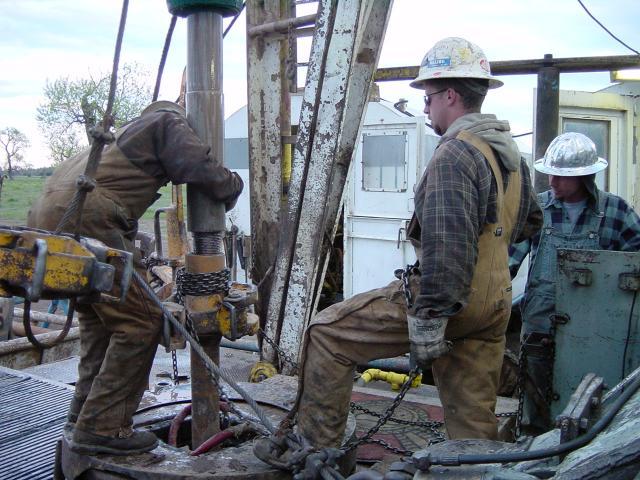
U.S. SANCTIONS WILL HIT

As the U.S. considers sanctions targeting Russia's oil and gas industry, the news is mixed for the U.S. companies among the industry's key suppliers.
First, the bad: Sanctions could disrupt lucrative Russian sales of oilfield gear and services by companies such as Exxon Mobil (XOM), Halliburton (HAL), and National Oilfield Varco (NOV). These and other U.S. companies could be blocked from selling to the Russians technology that's manufactured or patented in the U.S., people familiar with discussions on potential sanctions have told Bloomberg News. And the European Union is unlikely to join in the sanctions, these people say. That could give European companies an opening to pick up their U.S. rivals' lost business.
On the upside, European competitors could find it hard to cash in. One reason is that major European oilfield services groups are so deeply entrenched in the U.S. that sanctions could hit them as well. Schlumberger (SLB), the world's top oil and gas servicing company, was founded in France but now has dual corporate headquarters in Houston and Paris.
Although not incorporated in the U.S., companies such as Schlumberger might still be required to comply with U.S. sanctions, says Michael Socarras, a Washington-based attorney with Chadbourne & Parke who has advised Russian state-owned companies on sanctions. When the U.S. imposed sanctions earlier this year on some Russian individuals, it barred all "U.S. persons"—including companies—from doing business with them. A non-U.S.-based multinational could be considered "a person in the United States, depending on their level of activity in this country," Socarras says.
What's more, some of the technologies that Russia wants most come mainly from the U.S. For example, Schlumberger has a contract with Russian energy giant to help develop shale production in Western Siberia. But much of the equipment—and even some drilling crews—are being shipped in from Schlumberger operations in Texas and North Dakota. "The European companies do have some experience [with shale], but a lot of the equipment and the know-how come from the U.S.," says Matthew Bey, an energy analyst at Stratfor, a geopolitical intelligence firm based in Austin, Tex. "Even companies doing shale exploration in Europe got the technology from Americans."
No question, sanctions could hurt some big U.S. players such as Halliburton, which has major services contracts in Russia. Such contracts "tend to be higher-margin than some product contracts," says Rob Desai, a St. Louis-based analyst at Edward Jones. If one of Halliburton's Russian clients were forced to switch to a non-U.S. company, "they may not want to switch back," because of the expense and time involved in the changeover, Desai says.
Companies such as National Oilwell Varco could be better-placed to weather sanctions, Desai adds. If sanctions were imposed, the Houston-based equipment maker might temporarily have to stop selling items such as pipes and drill bits to Russian customers, but the customers would probably come back as soon as sanctions were lifted, he says. "Switching costs are a lot lower, and this company has a very high-quality product."
It's also possible that the U.S. sanctions might affect only new projects, while deals underway would be allowed to go forward. Representatives of Exxon Mobil, Halliburton, and National Oilwell Varco declined to comment on potential sanctions when contacted by Bloomberg News. A representative of Schlumberger couldn't immediately be reached.
businessweek.com





